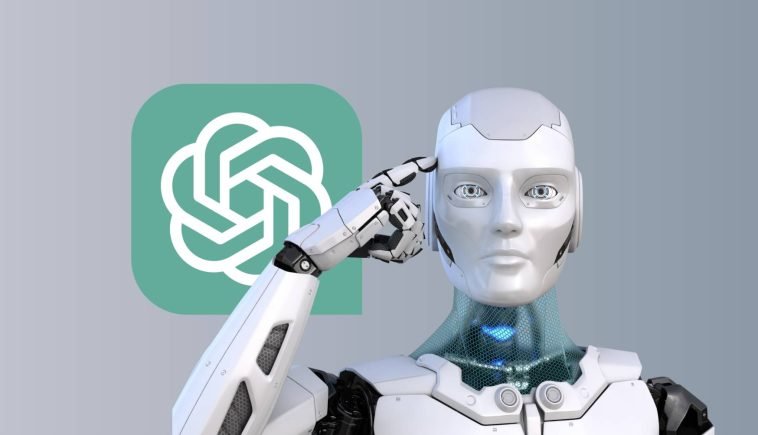Introduction.
When it comes to writing anything—from essays and articles to blog posts and even product descriptions—plagiarism can be a major concern.
Whether it’s accidental or intentional, plagiarism risks credibility, academic integrity, and even SEO rankings for those writing online.
Luckily, with AI tools like ChatGPT, it’s easier than ever to remove and rephrase content to make it unique while keeping the original meaning intact.
I’ll walk you through how ChatGPT can help remove plagiarism from your content and provide a breakdown of how it works, its pros and cons, and an FAQ to cover common concerns.
So, let’s dive in and explore how to make your writing plagiarism-free with ChatGPT.
Understanding Plagiarism and Why It Matters
Before getting into the specifics of ChatGPT, it’s useful to understand plagiarism and why it matters so much.
Plagiarism, or copying someone else’s words or ideas without proper acknowledgement, is taken seriously in academic, professional, and online content creation contexts.
Even if unintentional, using someone else’s work as your own can lead to consequences such as legal issues, damaged reputations, lost jobs, or academic penalties.
For content creators, bloggers, and SEO writers, unique content is crucial. Search engines penalize duplicate content, and audiences value originality, making plagiarism something to actively avoid.
With a tool like ChatGPT, rewriting and rephrasing content to make it original can be much easier.
How Do I Use ChatGPT to Remove Plagiarism?
ChatGPT can transform copied or repetitive content by rephrasing, rewording, and even restructuring ideas to give them a fresh spin. Here’s how to use it to remove plagiarism:
Step 1: Identify Potentially Plagiarized Content
Start by scanning your content with a plagiarism checker tool like Grammarly or Copyscape to identify any parts that might be flagged as copied.
Even if you’re reusing your own work, search engines often consider self-plagiarism as duplicate content, so it’s worth checking.
Step 2: Copy and Paste Into ChatGPT
Take any flagged text and copy it into ChatGPT, specifying that you’d like it rephrased to avoid plagiarism. Be clear about keeping the core meaning intact, so you end up with an original version without straying too far from the main ideas.
Step 3: Request Specific Rewrites
If you have certain guidelines, such as keeping a professional tone or focusing on particular keywords, let ChatGPT know. The tool is adaptable and can provide customized responses that still align with your original content.
Step 4: Run the New Content Through a Plagiarism Checker
After ChatGPT rephrases the content, it’s a good idea to run it through a plagiarism checker one last time. This extra step helps confirm that the text is unique and ready for publication or submission.
Step 5: Proofread for Consistency and Tone
Although ChatGPT does a great job of rephrasing, it’s always smart to proofread to ensure the tone, voice, and facts remain accurate. This step ensures that the rewritten text aligns well with the rest of your content.
Pros and Cons of Using ChatGPT for Removing Plagiarism
Pros
- Fast Rewriting: ChatGPT can quickly rephrase paragraphs, saving you time.
- Customizable Tone and Style: You can ask ChatGPT to adopt a formal, casual, or technical tone based on your needs.
- Consistency in Meaning: ChatGPT can provide new wording without straying from the original intent.
- Easy Access: ChatGPT is accessible from anywhere, making it simple to use for plagiarism removal on the go.
Cons
- Potential for Over-Reliance: Relying too heavily on AI tools might limit personal style development.
- May Miss Nuanced Rewrites: For highly technical or specific subjects, ChatGPT may require more guidance to ensure accuracy.
- Risk of Non-Perfect Output: The AI may sometimes produce slightly awkward phrasing that needs human refinement.
Frequently Asked Questions (FAQ)
1. Is using ChatGPT to rephrase content considered plagiarism?
Using ChatGPT to rephrase content isn’t considered plagiarism as long as the final output is unique and original. However, it’s always essential to double-check that the rephrased content maintains the meaning without direct copying from the source material.
2. How accurate is ChatGPT in avoiding plagiarism?
ChatGPT is highly effective at generating unique rewrites, but for critical work, it’s best to use a plagiarism checker to confirm originality. Combining AI with a plagiarism tool is a safe way to ensure the text is free from duplicate content.
3. Can ChatGPT rephrase highly technical or niche content?
Yes, ChatGPT can rephrase technical or specialized content, though sometimes it may require extra guidance to ensure accuracy. If your content has highly specialized terms, providing extra context or examples can improve results.
4. Is there a word limit for using ChatGPT for plagiarism removal?
The free versions of ChatGPT may have a limit per response, though this can be overcome by breaking down longer content into smaller sections. This approach also helps ensure more accurate rewriting and rephrasing.
5. Will using ChatGPT improve my SEO by removing plagiarism?
Yes, using ChatGPT to create unique content can improve SEO by avoiding duplicate content penalties from search engines. However, adding specific keywords and keeping a coherent structure are also essential for SEO.
Conclusion
Using ChatGPT to remove plagiarism can be a helpful strategy for creating unique, high-quality content.
By rephrasing and customizing the text, this AI tool can maintain the original meaning while ensuring originality, making it a valuable asset for writers, students, and content creators.
Are there other techniques or tools you’ve used for plagiarism-free writing, or would you consider using AI for this purpose?





GIPHY App Key not set. Please check settings